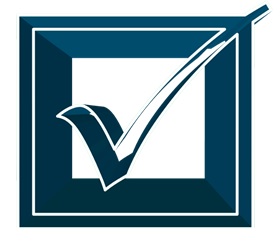
A quality manual is a document that outlines an organisation's quality management system (QMS).
In the past, a company seeking ISO 9001 certification would typically keep a big folder - sometimes several big folders - full of important documents related to their QMS. This unwieldy stack of forms, procedures, policies and so forth was sometimes referred to as a 'quality manual'.
But a quality manual doesn't have to include all of those things. In fact, a quality manual can just be a single document that sets out the intent for your quality management system and how it will operate.
SEE ALSO: What is a quality manual?
More...

If you're unfamiliar with the ISO 9000 family of standards, some of the terminology associated with ISO 9001 may seem a little confusing at first. Perhaps you're aware that ISO 9001 is some kind of management tool, but you're not quite clear on the details. You've seen the phrase 'quality management system' come up frequently in articles on this topic - so is ISO 9001 a quality management system?
We can answer that question right now: no, ISO 9001 is not a quality management system. Rather, ISO 9001 is the global standard for quality management systems (often abbreviated to QMS). The concepts are closely linked, but the terms 'ISO 9001' and 'QMS' should not be used interchangeably.
More...

Implementing a quality management system (QMS) is a great way for an organisation to streamline and improve its processes.
Running a business is a very demanding job, and taking the time to formalise the procedures you follow may not seem like a priority. But a properly-implemented QMS will make the whole company more efficient, so you will more than recoup the time you spend on it.
3 reasons to implement a quality management system
- Get your team working more effectively. A quality management system provides formal answers to the questions of who is responsible for what within your organisation, what goals they should be working towards, and what processes they should be following to get there. This results in more efficient work with better outcomes for the customer.
- Boost your customer satisfaction. Customer focus is a key principle of quality management. Implementing a QMS will push you to understand your customers better and refocus your operations towards the goal of fulfilling the customer's needs.
- Waste less time and fewer resources. Quality management systems are designed to make all organisational processes as efficient as possible, minimising waste of all kinds - so you'll waste less time, less manpower and less money in your pursuit of maximum customer satisfaction.
READ MORE: The Benefits of a Quality Management System
How ISO Accelerator can help
If you wish to implement a quality management system in order to get your business running more efficiently, we at ISO Accelerator can help. Not only will we work with you to develop a management system that suits the needs of your organisation, we will also ensure that your QMS is consistent with the ISO 9001 standard for quality management systems.
Once you have implemented your QMS, we can help you to achieve ISO 9001 certification quickly, with no need for face-to-face consultations. Our remote certification process is fast and cost effective - for more information, see How Does Remote ISO Certification Work?
Contact ISO Accelerator >
Photo from Pixabay
A quality manual is a document that describes the intent of an organisation's quality management system and how it operates.

There is a certain amount of debate surrounding quality manuals, what exactly they are, and whether a quality manual is required for ISO 9001 certification.
Many people confuse the term 'quality manual' with a quality management system (QMS). This is understandable, because in the past...
- The ISO 9001 standard talked about a quality manual
- Companies would often keep a large folder containing master copies of their quality procedures, policies, forms, etc. This was sometimes known as the 'quality manual'.
Today, some in the certification industry see quality manuals as unnecessary.
Does ISO 9001 require a quality manual?
The answer to this question varies on a case-to-case basis. If you are interested in obtaining ISO 9001 certification, whether or not you need a quality manual depends on the format and structure of your QMS.
Here at ISO Accelerator, we regularly help businesses to implement effective quality management systems. As part of each QMS, we do also provide clients with a digital quality manual.
However, this quality manual does not itself contain copies of quality procedures, policies, forms, and so on - instead, these are supplied as part of the complete quality management system. The quality manual is simply a document that describes the intent of the QMS and how it operates.
Developing a quality management system
ISO Accelerator offers a comprehensive ISO 9001 certification service. We will work with you remotely, helping you to develop a quality management system and put it into practice.
Once your QMS has been properly implemented, a remote audit will be conducted to confirm that you are meeting the requirements of your quality management system. You will then be awarded your ISO 9001 certificate.
As a bonus, you will be able to send clients and customers a digital copy of your quality manual to reassure them that you have processes in place to ensure a quality service.
How to Get Certified with ISO Accelerator >
Image from Pixabay

There are 8 quality management principles (developed by the ISO/TC 176) upon which ISO 9001 certification is built. These principles, when followed properly, help organisations to improve their quality management systems and overall business relationships.
Let’s take a closer look at the 8 principles of quality management:
- Customer Focus - This principle covers customer needs and customer services. It stresses that businesses should strive to understand their customers & go above and beyond their expectations.
- Leadership - Leadership is an integral part of any business. Without properly-defined leadership goals and objectives, a business will struggle to run smoothly.
- People Involvement - The third principle focuses on efficiency and effectiveness of staff. You can build stakeholder confidence by optimising performance, managing processes and using business resources wisely.
- Process Approach - This principle is about efficiency, effectiveness and consistency. Having a good approach to your processes helps to speed up activities, reduce costs and eliminate waste.
- Systematic Approach to Management - ISO defines this principle as “identifying, understanding and managing interrelated processes as a system contributes to the organisation’s effectiveness and efficiency in achieving its objectives”.
- Continual Improvement - This has to be be an active business objective; businesses should embrace new opportunities and adapt to new market situations.
- Factual Approach to Decision Making - Making a decision based on data and analysis is logical, but in the current climate, most workplace decisions are made in a rush. This principle helps to make sure decisions are made with consideration and clarity.
- Mutually-Benefical Supplier Relations - The final principle deals with supply chains and promotes healthy relationships between a business and its distributors. Building a strong supplier relationship encourages productivity.
If you're interested in gaining ISO 9001 certification for your organisation, ISO Accelerator can help you to do it quickly and with minimal hassle. Get in touch today to find out more.
Get Certified >>
Image courtesy of Pixabay.com